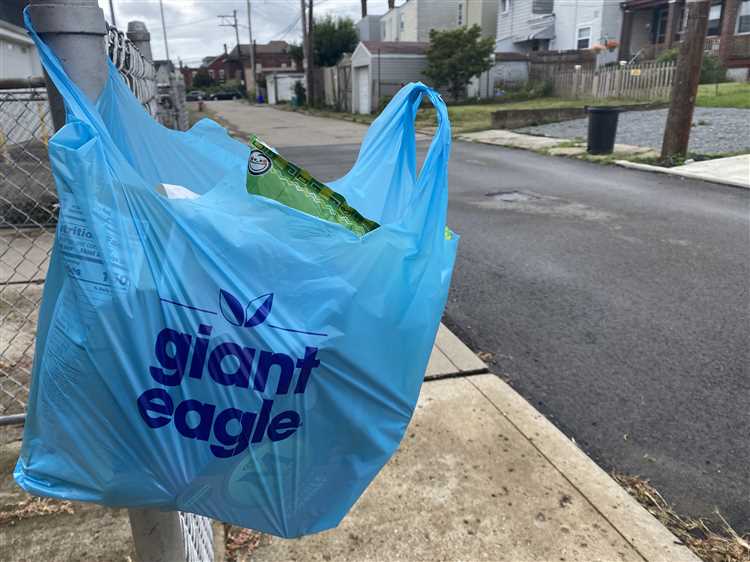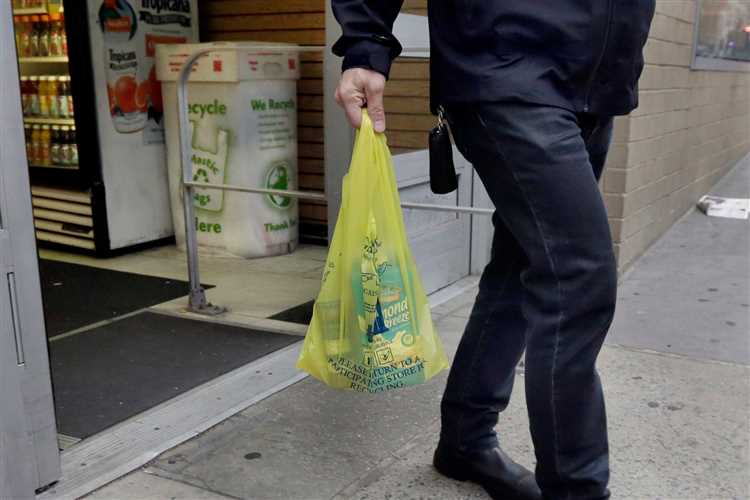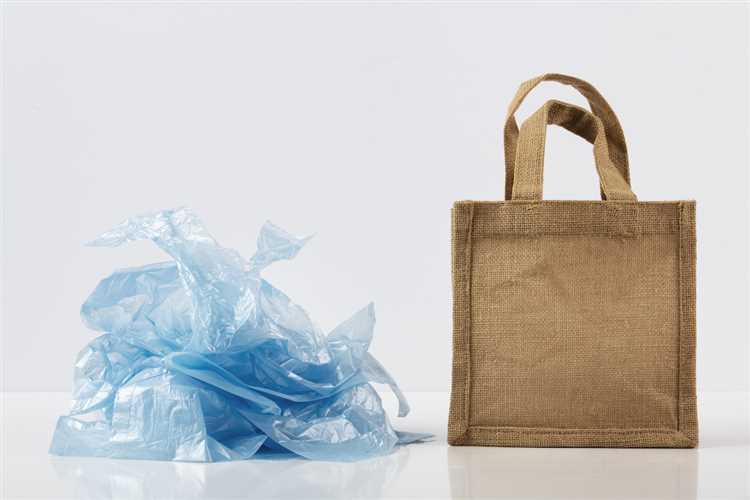In recent years, there has been a growing concern over the environmental impact of plastic bags. These non-biodegradable items have consistently been identified as a major source of pollution and a threat to wildlife. With increasing awareness about the need to protect our planet, many states have taken steps to ban or restrict the use of plastic bags. Pennsylvania, known for its rich natural resources and beautiful landscapes, is now considering joining this eco-friendly movement.
Proponents of the ban argue that reducing the use of plastic bags will have numerous benefits. Not only will it help reduce pollution and protect wildlife, but it will also save energy and reduce greenhouse gas emissions. Moreover, banning plastic bags can encourage consumers to adopt more sustainable alternatives, such as reusable bags, which are both durable and eco-friendly.
However, not everyone is in favor of a plastic bag ban. Critics argue that implementing such a ban could have negative consequences for businesses and consumers. They claim that plastic bags are cost-effective and convenient for both retailers and shoppers. Moreover, they argue that other factors, such as improper disposal and littering, are the real problems that need to be addressed, rather than targeting plastic bags specifically.
As the debate continues, all eyes are on Pennsylvania to see if the state will follow in the footsteps of its neighboring states and take action to ban plastic bags. Advocates for the ban are hopeful that the state’s commitment to environmental preservation will prevail, while opponents are determined to protect what they see as their right to choose how they bag their groceries. The outcome of this debate could have far-reaching implications, not only for Pennsylvania but also for other states considering similar measures to protect the environment.
- The Importance of Reducing Plastic Waste
- Health risks
- Sustainable alternatives
- The Environmental Impact of Plastic Bags
- 1. Pollution
- 2. Carbon Footprint
- 3. Waste Management
- 4. Microplastics
- Pennsylvania’s Current Regulations on Plastic Bags
- Borough and City Regulations
- Statewide Initiatives
- Consumer Awareness and Alternatives
- Proposed Legislation to Ban Plastic Bags in Pennsylvania
- Q&A
- Is Pennsylvania planning to ban plastic bags?
- Why is Pennsylvania planning to ban plastic bags?
- When will the ban on plastic bags take effect in Pennsylvania?
- What alternatives to plastic bags are being considered in Pennsylvania?
- How do Pennsylvania residents feel about the potential ban on plastic bags?
The Importance of Reducing Plastic Waste
Plastic waste has become a major environmental issue, with devastating effects on our planet and its inhabitants. It is estimated that around 8 million metric tons of plastic waste end up in our oceans every year, causing harm to marine life and ecosystems. Additionally, plastic waste takes hundreds of years to decompose, posing a long-term threat to the environment.
Reducing plastic waste is crucial for several reasons. Firstly, plastic waste contributes to the ongoing problem of climate change. The production and incineration of plastic releases greenhouse gases, contributing to the overall increase in global temperatures. By reducing our consumption of plastic, we can help decrease these emissions and mitigate the effects of climate change.
Secondly, plastic waste has a detrimental impact on wildlife. Animals often mistake plastic for food, leading to ingestion and entanglement in debris. This not only causes suffering for the animals but also disrupts ecosystems and food chains. By reducing plastic waste, we can help protect wildlife and preserve biodiversity.
Health risks
In addition to environmental concerns, plastic waste also poses health risks to humans. Many plastics contain toxic chemicals that can leach into the environment and enter our food chain. These chemicals have been linked to various health issues, including reproductive problems, hormone disruption, and certain types of cancer. By reducing plastic waste, we can minimize exposure to these harmful substances and protect our health.
Sustainable alternatives

Fortunately, there are sustainable alternatives to single-use plastics that can help reduce plastic waste. These alternatives include reusable bags, bottles, and containers made from materials like canvas, glass, or stainless steel. By choosing these options, we can significantly decrease our reliance on plastic and contribute to a more sustainable future.
In conclusion, reducing plastic waste is of utmost importance for the health of our planet, wildlife, and ourselves. By making conscious choices to minimize our use of plastic and opt for sustainable alternatives, we can help tackle the global plastic pollution crisis and create a cleaner, healthier world for future generations.
The Environmental Impact of Plastic Bags
Plastic bags have become a common commodity in our daily lives, but their environmental impact cannot be understated. Here are some key points to consider:
1. Pollution
Plastic bags are known to be a major contributor to pollution, especially in waterways and oceans. When improperly disposed of, they can easily find their way into rivers and streams, posing a significant threat to marine life. Animals often mistake plastic bags for food, which can lead to injury or death.
2. Carbon Footprint
Plastic bags are made from non-renewable resources such as crude oil. The production process requires significant energy expenditure and emits greenhouse gases. Additionally, transporting plastic bags to various locations contributes to carbon emissions, further exacerbating climate change.
3. Waste Management
Plastic bags are not biodegradable and can persist in the environment for hundreds of years. They often end up in landfills, taking up valuable space and adding to the growing waste problem. Even if they are incinerated, plastic bags release toxic chemicals, causing air pollution.
4. Microplastics

Over time, plastic bags break down into smaller, microplastic particles. These particles can enter the food chain through marine organisms and eventually reach humans. Consuming microplastics has been linked to various health risks, including hormonal disruptions and organ damage.
Considering these environmental impacts, it is essential to find sustainable alternatives to plastic bags. By reducing our reliance on single-use plastics and opting for reusable bags, we can help protect the planet and ensure a healthier future for generations to come.
Pennsylvania’s Current Regulations on Plastic Bags
Pennsylvania currently does not have an outright ban on plastic bags. However, there are certain regulations and initiatives in place to address the environmental impact of plastic bag usage.
Borough and City Regulations

Several boroughs and cities in Pennsylvania have implemented their own regulations regarding plastic bags. For example, the city of Philadelphia has enacted legislation that imposes a fee on retail establishments for each plastic bag provided to customers. This fee aims to discourage the use of plastic bags and promote the use of reusable alternatives.
Other municipalities have implemented complete bans on plastic bags within their jurisdiction, requiring businesses to provide alternative options such as paper bags or reusable bags.
Statewide Initiatives

While there is no statewide ban on plastic bags, Pennsylvania has taken steps to address their environmental impact through various initiatives.
One of these initiatives is the “Keep Pennsylvania Beautiful” campaign, which aims to educate the public about the importance of recycling and proper waste management. The campaign encourages the use of reusable bags and promotes recycling programs for plastic bags that cannot be avoided.
The Pennsylvania Department of Environmental Protection also offers grants and funding opportunities for local communities and organizations to implement recycling programs and initiatives focused on reducing plastic bag usage.
Furthermore, some legislators in Pennsylvania have proposed bills that would ban or restrict the use of plastic bags statewide. These bills are currently under consideration and have not yet become law.
Consumer Awareness and Alternatives
As individuals, Pennsylvanians can contribute to reducing plastic bag usage by being aware of the environmental impact and choosing alternative options.
Reusable bags, such as those made of cloth or other durable materials, are an eco-friendly alternative to single-use plastic bags. Many stores offer reusable bags for purchase, and some even provide discounts or incentives for customers who bring their own bags.
Additionally, some stores have implemented recycling programs for plastic bags, allowing customers to return used bags for proper disposal and recycling.
By promoting consumer awareness and providing accessible alternatives, Pennsylvania aims to reduce plastic bag usage and mitigate their impact on the environment.
Proposed Legislation to Ban Plastic Bags in Pennsylvania
The issue of plastic bags and their impact on the environment has gained significant attention in recent years. As a response to this growing concern, Pennsylvania is considering implementing a ban on plastic bags.
The proposed legislation aims to reduce the use of plastic bags in order to minimize their detrimental effects on the environment. Plastic bags are known to take hundreds of years to decompose, leading to pollution in landfills, oceans, and other natural habitats.
This ban would require retailers to no longer distribute or sell single-use plastic bags to customers. Instead, individuals would be encouraged to bring their own reusable bags or utilize alternative options such as paper or cloth bags.
Supporters of the ban argue that it would help reduce the amount of plastic waste that ends up in landfills, rivers, and oceans. They believe that by implementing this legislation, Pennsylvania can demonstrate its commitment to protecting the environment and promoting sustainability.
However, opponents of the ban express concerns over the potential impact on businesses, particularly small retailers. They argue that the cost of providing alternative bags or transitioning to more sustainable options could be burdensome for businesses already facing economic hardship.
If the proposed legislation is passed, Pennsylvania would join a growing list of states and cities that have already implemented similar bans on single-use plastic bags. These include California, New York, and Seattle.
It is important to note that the ban on plastic bags is not yet finalized and is subject to further debate and potential amendments. It remains to be seen whether Pennsylvania will join the growing movement to reduce plastic waste through the implementation of this legislation.
Q&A
Is Pennsylvania planning to ban plastic bags?
Yes, Pennsylvania is planning to ban plastic bags.
Why is Pennsylvania planning to ban plastic bags?
Pennsylvania is planning to ban plastic bags to reduce plastic waste and its negative impact on the environment. Plastic bags are a major source of pollution and harm wildlife and ecosystems.
When will the ban on plastic bags take effect in Pennsylvania?
The exact date for the ban on plastic bags to take effect in Pennsylvania has not been specified yet. It is still under consideration and will be announced in the future.
What alternatives to plastic bags are being considered in Pennsylvania?
Various alternatives to plastic bags are being considered in Pennsylvania, including paper bags, reusable bags, and biodegradable bags. These alternatives are considered more eco-friendly and sustainable.
How do Pennsylvania residents feel about the potential ban on plastic bags?
Opinions among Pennsylvania residents vary regarding the potential ban on plastic bags. Some people are supportive, as they see it as a necessary step to protect the environment. Others have concerns about the inconvenience or cost of switching to alternative bags.